How to Be a Successful Real Estate Agent in 2024
Getting your real estate license is easy. Even too easy, some say.
The license alone gets you nowhere.
If you want to count yourself among the top-producing agents succeeding in real estate, you need to treat your career like a small business.
Successful agents can follow up with leads, are focused on lead generation, stay accountable to themselves and others, manage their money, and are subject matter experts.
I’ve written this guide for agents who are new to a career in real estate or are experienced agents ready to achieve the next level of success.
Follow-Up, Follow-Through, Follow Back
The Three Fs are Follow-Up, Follow-Through, and Follow-Back.
I stole this from Ryan Serhant.
He talks about the Three Fs (beginning at the 6:04 mark) in his video about the key to success.
Follow-up
Quickly contact and engage new leads.
With the possible exceptions of referrals and inbound leads, new leads aren’t attached to an agent yet. They are waiting for someone to impress them. You can do that by being the first one to contact them with value.

Get there the firstest with the mostest.
Military aphorism attributed to Nathan Bedford Forrest
Being the first to a new lead with the most value (listing information, search, or a CMA) is the way to win the war for contested internet leads or to impress a new referral lead alike.
It’s not good enough to do it once, either. Leads can take several contacts to convert. Even then, they are seldom ready to list or view houses right away. Following up consistently over the long real estate sales cycle is imperative. It’s extremely painful to watch buyers and sellers you were working with suddenly buying and selling with someone else because you hadn’t spoken in over a month.
Following up not just once but consistently with your leads for weeks, months, and even years is fundamental to real estate prosperity.
Follow-through
Do what you say you will do.
Serhant is spot on when he talks about how agents promise to send a CMA, an email, or listings, just as soon as they’re back to the office …. and then don’t. (I’m guilty myself.)
Simply executing on what you say you will do will elevate you above a surprising number of agents.
Related to this principle: don’t overpromise.
When I say I will have something done, I usually think about how long it will take me and then double it. “Oh, I’ll get that back to you by tonight……er…..tomorrow”. That way I have some cushion depending on how crazy my day gets and can still properly set their expectations.
Follow-back
Stay in touch with your database and your past clients.
Referrals, your sphere of influence, and repeat business are what sustains a successful real estate business. You will struggle if you have a transactional mindset. You need to be building relationships.
“Following back” with your past buyers with things like a market report or helping them challenge their annual property tax assessment is a great way to keep top of mind with your past customers and your name on the tip of their tongue for referrals.
Stop Chasing Squirrels and Lead Generate in Your Niche

Most agents do too much.
Open houses. Door knocking. Blogging. Calling FSBOs. Postcards. Home buyer seminars. Promoting posts on Facebook. Zillow leads. Email newsletters. YouTube vlogs. TikTok videos.
The result is that their time isn’t spent on the things that matter most.
Don’t chase every shiny object. Instead, focus on the four main pillars of your business.
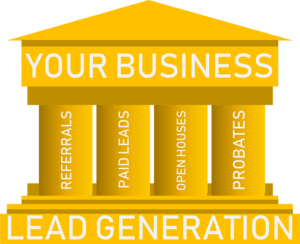
By focusing on just a few pillars, you can whole-ass a few things well instead of half-assing many things into failure.

Never half-ass two things. Whole-ass one thing.
Ron Swanson, Parks and Recreation
By selecting 4 pillars (one of which should be referrals, past clients, and friends and family), you are still diversifying your lead generation strategies, but not overextending yourself.
Lead generation requires consistency. Keeping consistent is hard when you are balancing too many plates.
Do a deep dive into your chosen four lead generation strategies and ignore the rest.
The Riches are in the Niches
Related to your four pillars is your chosen niche.
Picking a niche and centering your lead generation on the subject can be a great marketing hack. I created a list of pros and cons of each niche if you are considering, including:
Types of Homes
- Luxury
- Multi-Families
- Commercial
- Condos
- Age-Restricted
- New Construction
- Farm and Ranch
- Vacation Homes
- Environmentally Conscious
- Waterfront
- Historic Districts
Types of Clients
- Foreign Language / International
- Investors
- Veterans
- Niche Social Groups
- College Students
- ADA Community
Types of Situations
- Short Sales
- Bank REO / Foreclosures
- Corporate Relocation
- Probates
- Divorce
Developing a niche for yourself is a great way to offer a unique value proposition that other agents can’t match.
Consequently, you can also turn that into agent referrals! Other agents are more likely to send you referrals if they have buyers wanting an ag exemption and you are the farm-and-ranch expert.
Break Down Your Work Into Daily Tasks
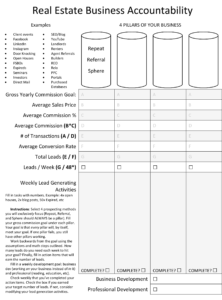
How do you know if you are on track for your goals? A single day in real estate flies by, and it can feel like you’ve accomplished a lot.
But did you accomplish the right things to sustain your business?
I created a downloadable Accountability Checklist.
Using this checklist, you can break your annual goals into weekly tasks based on the four pillar methodology I spoke about above.
EXAMPLE: Your income goal is $100,000/yr and FSBO leads are one of your lead generation pillars. Your average price point is $250,000 at a 3% commission and 80/20 brokerage split, meaning you earn on average $6000 per transaction (250000*0.03*0.8). That means you need 17 closings from FSBOs (100,000/6000). You expect that you can convert 2.5% of FSBOs you contact. That means you need 680 FSBO leads a year (17/0.025) or ~14 FSBO leads per week (680/52 weeks). Did you contact 14 new FSBO leads this week? If not, you’re failing.
At first you will need to estimate these numbers. But as you actually do business, you can begin refining them and getting more accurate with your assumptions.
Accountability Groups
It doesn’t have to be a group. It can be an individual if you have a business partner or a spouse who is capable of dispassionately keeping one another honest and accountable.
If a group, you want to keep the group small.
Don’t BS your way through. In my experience in accountability groups, agents start just summarizing their week. Ain’t nobody got time for that. Get to the point. Did you hit your goal or not? If not, why not and what are you going to change so that you hit it next week?
Is your goal realistic? Do you need to change your goal? Do you need to time block? Was your time spent effectively? Do you need to practice scripts? Do you need to better prepare? Figure it out, write it down, and hold yourself accountable to complete the task by the next week.
There are lots of online resources for finding an accountability group or setting one up yourself. Or consider a program like GetMotivatedBuddies to find a virtual buddy to lean on!
Agile Methodology
Another method for accountability is breaking up your work is popular in the software world: agile methodology.
Agile breaks up work into 2-week “sprints”. At the end of each sprint, you measure what you accomplished and plan the next 2-week sprint. It’s a great way to
The free versions of software like Trello can help you organize your work and sprints.
Professionalize Yourself

Presenting Yourself Like a Professional
Presenting yourself as a professional means things like dressing professionally, arriving on time, setting expectations, and promptly communicating with clients.
It also means cleaning up your social media, if relevant. Avoid politics on your professional accounts. Don’t curse. Etc.
And it means getting a professional email.
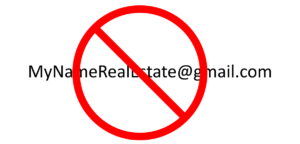
No more email addresses @gmail.com! If your email is like this, it is past time to get your email with your own domain. You can even get your professional email from Google if you are already a Gmail user.
Becoming a Subject Matter Expert
I think there are 3 categories that make you a competent real estate agent and bona fide expert: your market, professional, and industry knowledge.
Market Knowledge
If you can’t speak fluently on local market conditions, you will lose the faith of your prospective clients very quickly.
Additionally, a core responsibility for a good agent will be keeping your sphere and past clients informed of market conditions.
Don’t just read your MLS’s monthly market report, although that is a good start. Spend time in the MLS yourself. You have all the same data yourself! Matrix, for example, makes it really easy to look up median home prices, DOM, and sell-to-list-price ratios for any search you create.
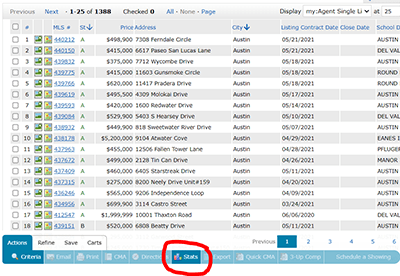
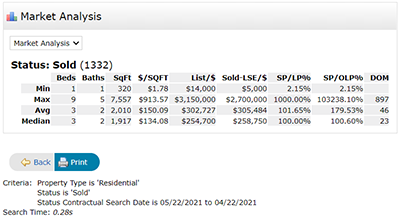
Your market knowledge will be critical to making an effective comparative market analysis for your sellers. Use your knowledge to persuade them that you understand the market and will earn them top dollar.
Professional Knowledge
The best real estate agents know their contracts. They are conversant on types of loans. They understand the real estate process. They can explain the schedules of the title commitment, a Closing Disclosure, or an appraisal. They don’t leave themselves or their clients vulnerable to lawsuits. They conduct themselves consistent with the National Association of Realtors (NAR) Code of Ethics.
Choosing a good broker should go a long way to ensure you get the right training to succeed as a Realtor.
Read the contracts. All of them. Be sure that you can walk through every paragraph of every promulgated contract, as well as every relevant transaction document.
Read the Code of Ethics. Ensure you understand them by reading NAR Case Studies. The Code of Ethics is not as simple as first meets the eye and there is a lot of difficult situations you don’t want to find yourself in.
I recommend considering taking your formal real estate education further with designations and accreditations, particularly the Graduate Realtor Institute (GRI). This course has everything that wasn’t in your license course that should have been. How to fill in contracts, marketing, and best business practices. I was as competent as a 20-year veteran agent when I emerged from the GRI.
Industry Knowledge
What is going on with Power Buyers? What is the future of the MLS consolidation trend? How does NAR’s pocket listing policy affect consumers? Are flat-fee brokerages sacrificing quality for a cheap buck?
Subscribing to Inman is a great first step to staying on top of the industry. I’ve compiled lists of other resources that will keep you aware of big picture trends and topics:
- Real Estate Books
- Real Estate Websites
- Real Estate Podcasts
- Real Estate Conferences
- Real Estate YouTube Trainers
- Real Estate Experts
- Real Estate Twitter Influencers
- Real Estate Facebook Groups
Consider joining your local association or MLS committees and even board.
Successful real estate agents are businessmen and women. They are plugged into their industry, and often become leaders and innovators.
Stop Spending on Stupid Stuff

I wrote an article called 23 Things New Real Estate Agents Waste Money On. Here’s the list:
- buying leads
- Facebook and Google ads
- office space
- yard signs
- business cards
- postcards
- a website
- a car
- predictive analytics
- open houses
- expired/FSBO lists
- commissionectomies
- commission splits
- coaching
- books
- clothes
- designations and accreditations
- billboards
- meals
- cameras and drones
- automatic renewal
- magnets
- too many MLSs
- taxes
Work your way through the list and see what you can cut!
That’s not to say that none of the above items are worthwhile. Some are essential depending on your lead generation strategy and what stage in the business you are in. But they aren’t essential to every agent all the time.
Real estate agents are uniquely susceptible to shiny-object syndrome. I found myself subscribing to 3 different CRMs at one point!
And lead with revenue. Don’t spend money thinking you have to in order to earn money. Earn money and then spend some (after paying yourself) to grow your business.
There are just five items I think every real estate agent should spend money on:
- CRM
- Accountant
- Correct insurance (automobile, E&O, etc)
- eSignature software
- cloud-based document storage
Technology Will Not Save You
One trap brokers and agents alike fall into is thinking that technology will solve their pain points.
Bad at follow up? Get a better CRM that automates it for you!
Suck at CMAs? Get a CMA software!
The reality, however, is that technology is designed to support you at something you are already good at. You know you need technology when the thing you are doing a lot is not as efficient or effective as it should be, not to replace something you are barely doing already.

Don’t be too proud of this technological terror you’ve constructed
Anakin Skywalker
This site, Hooquest, is all about the tech-enabled real estate agent. Technology is great! It is a necessary ingredient to success!
But it is not sufficient. You have to get good at your core competencies and it is not technology that will stand in your way of doing so.
Pay Yourself First
There is a budgeting concept called “Pay Yourself First“, also known as “reverse budgeting”.
The theory goes that we often tend to justify spending on our business because … it’s on our business! Business expenses are for the good of the business! Agents will make business expenses throughout the year and then, whatever is left over, is their “income”.
The problem with this expense-first methodology is that your expenses increase and your income shrinks.
Instead, if you set aside your salary first from your commission checks, you will know what money is actually left over and available for investing in your business.
Select a reasonable salary based on your realistic goals. Pay that to yourself from your commissions first and maintain a buffer of six months, twelve months, or whatever you choose. If your savings begin to significantly outpace that amount, only then consider investing the excess into your business.
Accounting Software
I recommend getting someone to do your taxes from Day 0 as a real estate agent. Independent contractor taxes can start to get complicated, and even a single missed deduction can be worth the cost.
Relatedly, you need to know your business numbers.
What was your GCI last year? What is your average commission per transaction? How much money did you lose in “commissionectomies“?
You should be tracking these like a hawk and be able to spout off your year-to-date earnings and total transactions closed without even looking.
My personal favorite way of keeping on top of my numbers is Realtyzam, an affordable and easy-to-use system built for agents. If you’re a team or brokerage, you may want a more robust option like a brokerage platform and/or Quickbooks.
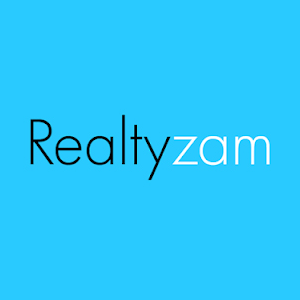
Realtyzam
$11.58/mo. Realtyzam is one of the best pieces of real estate accounting software in any category. Extremely simple and easy, other software could take some pointers from Realtyzam’s excellent usability. Track your commissions, closings, expenses, and P&L like a pro. It links with your bank account to track and categorize expenses automatically. It has just about everything you need as a single agent for your taxes and financials.
Do What You Do Best and Outsource the Rest

What about the things that are not your core competencies? Is technology the solution?
No.
Give that so someone else.
Peter Drucker is one of the most influential management consultants of the 20th Century, and coined the phrase: “Do what you do best and outsource the rest”.

Do what you do best and outsource the rest.
Peter Drucker
This is especially relevant for real estate agents.
By oneself, an agent is responsible for business planning, marketing, prospecting, sales, operations, running a website, and maybe even HR and IT. Chances are very slim that you are awesome at all these things.
Partner Up
Outsourcing is expensive though!
Well, not necessarily!
One option is to partner with other agents in your office. Ideally, partner with someone who is the opposite of you. Are you the bubbly social person? Find someone who loves sitting behind the computer running ads, working on the website, and sending contracts in DocuSign. Partner up 50/50!
Even better, join a team. Teams can pool resources to help bring on transaction managers, assistants, and share costs of lead generation.
Lead With Revenue – Pay from Closing for Help
Or, you can outsource some elements of your business like the transaction to a company like Transactly. Transactly offers transaction coordinators whom you pay per transaction at closing.
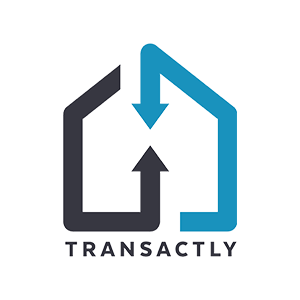
Transactly
$127+/listing. Transactly offers listing and transaction assistants on a per-listing basis. This is a huge plus for brokerages and teams who don’t want full-time TCs or VAs but also don’t need their salespeople spending time on paperwork and transaction management.
Other virtual assistant companies let you outsource the repetitive and lower-impact elements of your business, allowing you to apply your efforts where they are most leveraged.
Just Do It
The last bit of advice on how to become a successful real estate agent?
Stop reading.
Just do it!
Conclusion
Did I stutter? Just do it!
Updated April 13, 2024; Originally published May 23, 2021



Great information…going to just do it!
Always look competitor or a person who is working flawlessly and getting success. Your competitor will always be your teacher. Look at them, how they work, what tactics they use to tackle and fulfill their client needs. Secondly, you can also learn from your seniors, ask them to let you attend them in their meetings, deals or communications. That will help you to understand the better insight and the way to work more proficiently.